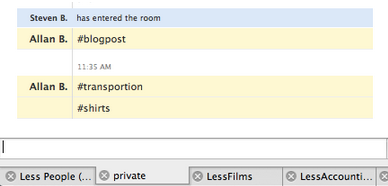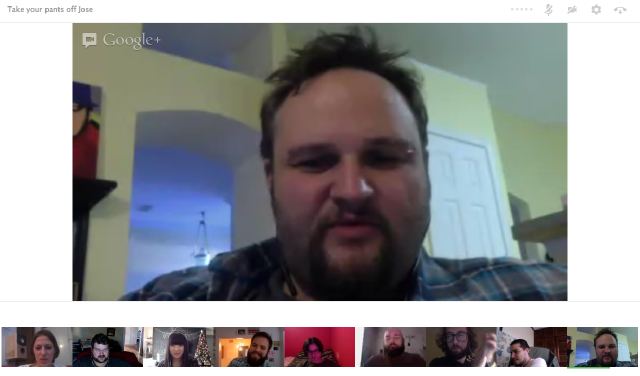I received this tweet the other day and thought it was a good time to share how we do things at LessEverything.
@allanbranch About to move halfway across country from my business partner. Any great web apps for staying connected remotely?
— Matt Stauffer @stauffermatt March 19, 2013
LessEverything is broken down into two remote teams. The first team is comprised of LessAccounting support, devs, plus Steve and me. The second team is LessFilms which is Corey, Eric, Steve, and me. Multiple projects, multiple locations, multiple income streams across seven time zones.
We have no formal meetings, although in the past we did have weekly meetings just to hang out. When those began to be “too much work,” we stopped.
Our communication toolset is an ever evolving set of apps. Currently it wholly consists of Skype, iChat, Hangouts, Campfire, Screenhero and, of course, email. The support team, Alison and Annette, use FreshDesk to communicate with LessAccounting customers.
We’ve been around for over six years now and have come up with a few “rules” that have worked out well for us:
Our main communication tool between us is Campfire, and we use Propane to manage it on OSX. Within Campfire we have rooms for LessAccounting, LessFilms, LessDev, LessTeam, notices and a private room for Steve and me. Each room has various team members, and most people are in multiple rooms at one time. The notices room is just for notices from Github, TravisCI, NewRelic, system updates, CodeClimate, etc.
The private chatroom is for just Steve and me. We’ve come up with a little system for following rule #1: I don’t want to video chat with Steve ten times each day for two minutes each time. It’s more productive to video chat once or twice for a longer amount of time. Most issues are not pressing so we use hashtags. We put the # symbol in front of topics to discuss later.

There are days when Steve or I, or both of us are in a bad mood, maybe we’ve slept poorly the night before. We’ll always start the video chat conversation with “How’s it going?” That question should not get a generic response, “I’m tired, I slept poorly. I don’t feel well.” We must listen to that response carefully because that answer will gauge the other person’s patience level and willingness to talk through tougher decisions.
Sometimes we might talk about what’s going on personally in our lives, just to share or to pump the other up. Sometimes, nothing wrong, but only one of us feels like talking, so we talk later. Sometimes one of us is mad and we have a big dramatic fight or talk things through. Such is life.
Hiring quality people is what makes remote business work. It takes a certain amount of maturity and independence to work remotely. We only hire people that thrive in this type of self-starter environment. Not everyone does, and that’s OK.
Nathan Wong of BuySellAds says “I think the key for us thus far has largely been the way we’re structured, so that people aren’t overly dependent on each other the way they may be in more traditional setups, by giving people autonomy over decisions and largely compartmentalizing our products. This has some obvious added bonuses of communication being less of a time-sink, a benefit that transcends location/technology.”
The last thing worth mentioning is that working from home for years is hard on everyone. We all need social interaction, so we take great care to Skype with each other whenever we need to, especially if it’s just to chat. We’ve even stayed on Skype all day, in the background, just to feel less alone.
One of the unique things Steve started doing a few years ago is having an annual holiday party on a Hangout. Everyone is required to BYOB and we play drinking games and have a lot of fun.

If you have any tips for running remote teams or have a remote business partner, please leave a comment.
If you wanted it to build a product you’d find a way to get time to work on it. If you really wanted to start that new hobby you’d sacrifice something to find the time and money to do it.
I'll define a "Wannabe Entrepreneur" as someone who has never made money from their businesses. Here are the different types of wannabes.
In the past few years I've built go-carts, built a 200+ sq ft workshop, written several eBooks. How do I create a life where I have time to work on side projects?